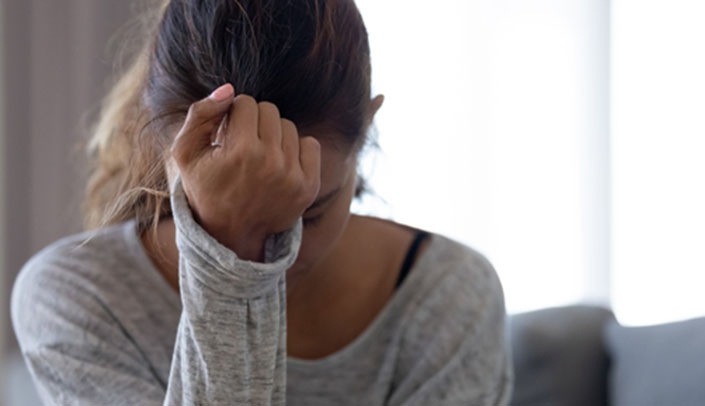Do you often feel anxious? Are you wondering if it’s “normal” anxiety or something that could benefit from treatment? Take a moment to see if you identify with any of these six symptoms:
- Muscle tension
- Fatigue
- Difficulty sleeping
- Restlessness
- Irritability
- Difficulty concentrating
When to see a doctor
Experiencing many of these symptoms, plus excessive anxiety and worry, may point to generalized anxiety disorder (GAD). About 19% of U.S. adults experience some type of anxiety disorder each year, when we are not experiencing a pandemic. This last year, however, many more Americans have felt the strain of all the changes we’ve faced, and about half of us have experienced persistent anxiety symptoms. If you are one of them, please know that there is help and hope for this.
Where can you turn to for help?
There are a number of helpful strategies to reduce excessive worry and anxiety. Some of the best “do-it-yourself” remedies include regular physical exercise combined with some form of relaxation. A simple deep breathing exercise that helps reduce anxiety is to breathe very slowly — taking six seconds to inhale and six seconds to exhale. This can be repeated for a total of four breaths, and if sprinkled throughout the day can take the edge off of anxiety.
A phone app that many people find helpful is “COVID Coach.” It has a lot of nice features, including many stress-relieving activities like deep breathing, body scan meditation, and others. It was designed by the VA and so is free to all smartphone users.
Sometimes, though, doing it yourself just isn’t working as well as you want it to. We can all benefit from some professional help from time to time. UNMC and Nebraska Medicine staff can use our Employee Assistance Program (EAP) and are eligible for up to five no-cost counseling sessions per event.
Employee Assistance Program
- 402-330-0960 or 1-800-922-7379
- Arborfamilycounseling.com
Peers in Need of Support (PINS) program (Nebraska Medicine and UNMC only)
- Confidential 1:1 support from a trained colleague
- Email PINS@Nebraskamed.com or complete this confidential form.
Suicide Prevention Helpline
- 1-800-273-8255
If you need something more, your primary care provider or the EAP staff can help you find other providers who can help you. UNMC students can use Counseling and Psychological Services (CAPS) for no charge, and UNMC residents can contact Susan Smith with the House Officer Assistance Program (HOAP).
